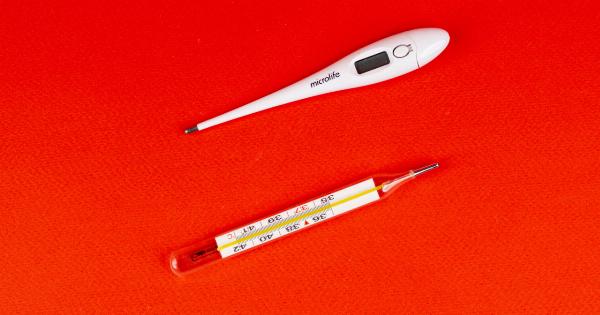Soda, also known as carbonated drinks or soft drinks, has become a staple in many people’s diets. It is often consumed as a refreshing beverage, especially with fast food meals or during social gatherings.
However, excessive consumption of soda can have severe health repercussions. This article dives into the various health hazards associated with consuming too much soda and provides insights on maintaining a balanced and healthy lifestyle.
1. Excessive Sugar Intake and Weight Gain
One of the primary health hazards of drinking excessive soda is the skyrocketing sugar intake. These beverages are loaded with added sugars, often in the form of high fructose corn syrup.
Consuming high amounts of sugar regularly can lead to weight gain and increase the risk of obesity, ultimately contributing to various related health issues like diabetes and heart disease.
2. Dental Health Problems
Soda is highly acidic and contains harmful substances that can erode tooth enamel. Regular consumption of soda can lead to dental cavities, tooth decay, and gum disease.
The sugar content in soda acts as food for bacteria in the mouth, resulting in increased acid production, which damages teeth over time. It is linked to poor oral health and can lead to costly dental procedures.
3. Bone Health Concerns
Studies suggest that excessive soda consumption can negatively affect bone health, especially in children and adolescents.
The high phosphoric acid content in soda can interfere with calcium absorption, leading to weakened bones and an increased risk of osteoporosis later in life. This can have long-term consequences and impact overall skeletal health.
4. Cardiovascular Health Risks
Regularly consuming excessive soda can contribute to cardiovascular health problems. Research has found a link between high sugar intake and an increased risk of heart disease.
Excessive soda consumption can lead to elevated blood pressure, higher cholesterol levels, and an increased likelihood of developing metabolic syndrome. These factors can significantly impact cardiovascular health and increase the chances of heart-related issues.
5. Kidney Damage
Another health hazard of excessive soda consumption is the potential damage to the kidneys. The high phosphoric acid content in soda can disrupt the delicate balance of minerals in the body, adversely affecting kidney function.
Over time, this can lead to an increased risk of kidney stones and other kidney-related problems.
6. Digestive Issues
Soda contains carbonation, which can lead to bloating, gas, and discomfort in the digestive system. It also has a negative impact on the gut microbiome, potentially affecting overall digestive health.
Additionally, the high sugar content in soda can disrupt the natural balance of the digestive system, leading to gastrointestinal issues like acid reflux, indigestion, and an increased risk of developing conditions such as irritable bowel syndrome (IBS).
7. Caffeine Addiction and Withdrawal
Many sodas, particularly colas, contain caffeine, which is a stimulant that can lead to addiction. Consuming soda regularly can result in caffeine dependence, making it difficult to stop or cut down on its consumption.
Excessive caffeine intake can lead to various health issues such as insomnia, restlessness, anxiety, and even withdrawal symptoms when attempting to quit.
8. Increased Risk of Type 2 Diabetes
The high sugar content in soda can significantly contribute to an increased risk of developing type 2 diabetes.
The excessive intake of added sugars can lead to insulin resistance over time, making it more challenging for the body to regulate blood sugar levels. Regularly consuming soda, especially in large quantities, can have a detrimental effect on insulin sensitivity and increase the likelihood of developing this metabolic disorder.
9. Negative Impact of Artificial Sweeteners
While diet sodas might seem like a healthier alternative, they often contain artificial sweeteners. These sweeteners are associated with their own set of health concerns.
Regular consumption of artificial sweeteners can disrupt the gut microbiome, leading to digestive issues and potentially affecting blood sugar control. Some studies have also suggested a link between artificial sweeteners and weight gain, contradicting their intended purpose in diet sodas.
10. Psychological and Behavioral Effects
Excessive soda consumption can also have psychological and behavioral effects.
The high sugar and caffeine content in these beverages can lead to mood swings, hyperactivity, and an increased risk of anxiety and depression, particularly in children and teenagers. Additionally, the habit of consuming soda regularly can contribute to a dependency on sugary drinks, making it difficult to adopt healthier beverage choices.
In Conclusion
Consuming soda in moderation can be a part of a balanced diet, but excessive consumption can have severe health hazards.
The high sugar content, potential dental problems, negative impact on bone and cardiovascular health, kidney damage, digestive issues, caffeine addiction, increased risk of type 2 diabetes, and the effects of artificial sweeteners are all reasons to be cautious about soda consumption.
It is important to be aware of the potential health risks and make conscious choices to limit soda intake. Opting for healthier alternatives like water, unsweetened teas, or natural fruit juices can help minimize the negative effects on health.
By prioritizing a balanced and nutritious diet, individuals can reduce the health hazards associated with excessive soda consumption and maintain a healthier lifestyle overall.






























